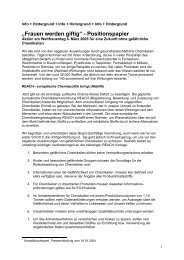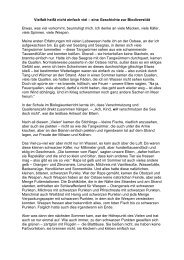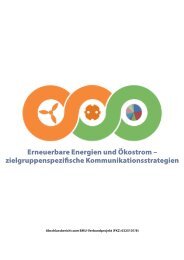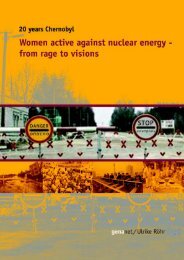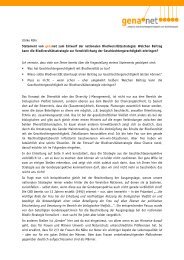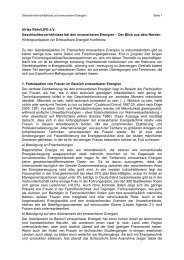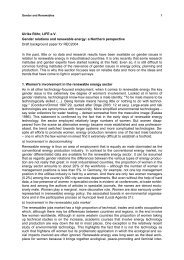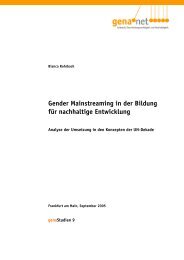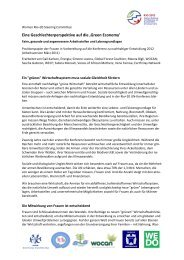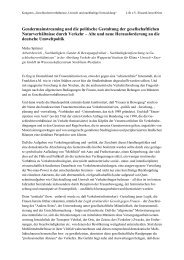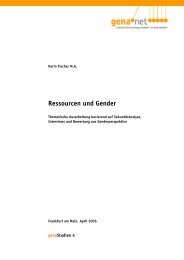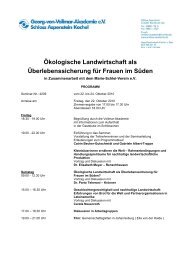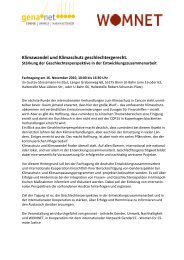Female, male, sustainable - genanet - Leitstelle GENDER ...
Female, male, sustainable - genanet - Leitstelle GENDER ...
Female, male, sustainable - genanet - Leitstelle GENDER ...
You also want an ePaper? Increase the reach of your titles
YUMPU automatically turns print PDFs into web optimized ePapers that Google loves.
7<br />
Subtle differences – arguments for<br />
more gender justice<br />
As a result of climate change, global environmental<br />
transformations are gaining intensity, creating a<br />
growing demand for solutions that cater to the<br />
idiosyncrasies and needs of all social groups and for<br />
inclusion in decision making processes. With this in<br />
mind, <strong>genanet</strong> puts gender perspectives at the centre<br />
and shows that the climate and energy sectors need<br />
to turn their attention to gender roles and differences<br />
between women and men – because differences rule:<br />
in political debates and economic planning, in the<br />
ways women and men are affected by environmental<br />
problems, the ways they perceive risks, and so on.<br />
Participation and involvement: Women are underrepresented<br />
in all relevant political and economic decisions<br />
concerning energy and climate protection – be it at<br />
the local, national or international levels. Taking the<br />
UN climate negotiations as an example, the percentage<br />
of women in government delegations at the 11th UNFCCC<br />
Conference in November 2006 was only 15.7 per cent. Even<br />
though there are some instances of large, international,<br />
non-governmental organisations led by courageous<br />
women, primarily men, also in environmental associations,<br />
deal with this subject area.<br />
Employment and exertion of influence: In industrial<br />
nations, energy production and distribution make up<br />
some of the most significant economic factors. Accordingly,<br />
these sectors are extremely powerful and that power<br />
is exercised widely to the exclusion of women. In other<br />
words: Women are afforded very little influence in both<br />
national and international energy planning and policymaking.<br />
Since energy production is a technically dominated<br />
area of operation known for its extremely low<br />
percentages of women, the creation of new jobs in the<br />
renewable energy sector is of little advantage to them.<br />
➤ genaStudy 5: Renewable energy fonds – profits exclusively<br />
for higher-income-earners? A critical analysis<br />
of tax incentives for share models in renewables / wind<br />
power. Frankfurt/Main 2005. (in German only)<br />
➤ genaStudy 6: Women in the renewable energy economy<br />
– results of a survey among initiatives, associations,<br />
and corporations. Frankfurt/Main 2005. (in German<br />
only)<br />
EXAMPLE: CLIMATE AND ENERGY<br />
Both studies can be accessed over the Internet.<br />
Visit: http://www.<strong>genanet</strong>.de/publikationen.html



